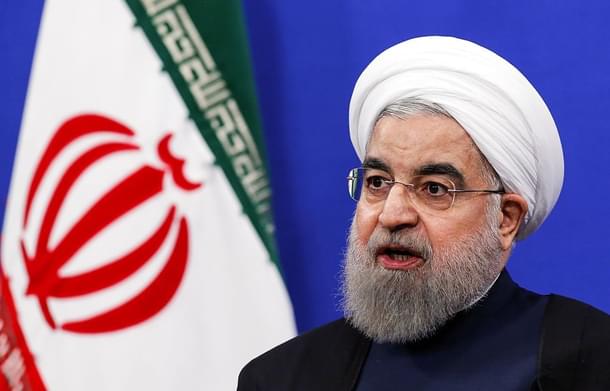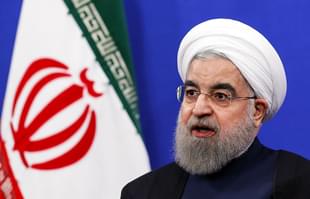Insta
Iran’s Presidential Election: Hassan Rouhani Wins Second Consecutive Term
Swarajya Staff
May 20, 2017, 01:15 PM | Updated 01:15 PM IST
Save & read from anywhere!
Bookmark stories for easy access on any device or the Swarajya app.


Hassan Rouhani, Iran’s incumbent President, is all set to embark on his second term as the country’s leader. Rouhani, who belongs to Iran’s reforming camp, defeated his rival conservative hardliner Ebrahim Raisi by seven million votes.
Out of 40 million votes cast, over 22 million people voted for Rouhani which translated into more 50 per cent vote share. If no candidate had gotten the majority of the votes cast, the election would’ve moved to second round. But now there is no need for that.
The election was seen as a verdict on Rouhani's policy of opening up Iran to the world and his efforts to revive the economy. President Rouhani had sought to frame the election as a choice between greater civil liberties and extremism.
With President Rouhani winning the Iran's presidential elections, his policies will have a positive impact on country's relations with the West and on the Iran nuclear deal which was achieved after years of tough negotiations.
Electoral decisions in Iran are taken by its most powerful political body, the Guardian Council. It is the upper house of the Iranian Parliament and has twelve members all of whom are men. The Supreme leader Ayatollah Ali Khamenei helps appoint the Guardian Council, panel of conservatives that decides who will run for president. Khamenei has the final say on all matter of foreign and domestic policy.
Efrahim Raisi, Rouhani’s rival, is a protege of Khamenei. Though Khamenei doesn’t get involved in political matters, Raisi had indirect backing of the country’s highest spiritual leader. But Rouhani still won which shows that majority of the country’s approve of their president’s reformist policies.




